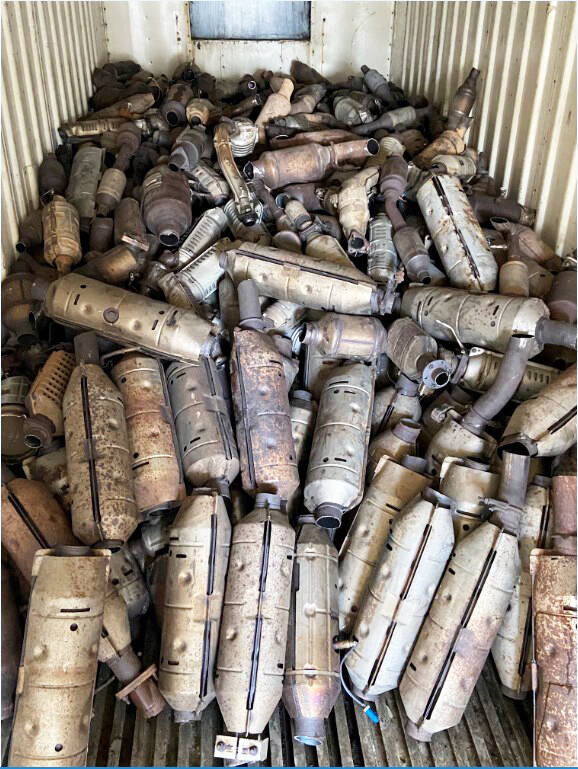The King County Prosecuting Attorney’s Office (KCPAO) continues to urge Washington lawmakers to enact tougher policies to curb the demand for catalytic converters that are illegally stolen and then sold throughout Washington State.
The KCPAO-backed catalytic converter bill, ESHB 2153, unanimously passed the House on Feb. 13 and is now being considered by the Senate. Representatives from the KCPAP testified in support in the legislation on Feb. 22 during a Senate Transportation Committee hearing on the legislation
Over multiple legislative sessions, the KCPAO has worked directly with the Washington State Legislature to develop and pass legislation to combat catalytic converter thefts which disrupt the lives of residents in King County and across Washington.
“By taking action on ESHB 2153, Washington lawmakers have an opportunity to make a meaningful difference to reduce the harm catalytic converter theft has on King County residents,” said King County Prosecuting Attorney Leesa Manion in a statement regarding the legislation. “I urge Senators to act swiftly bring this bill to the Governor’s desk.”
Informed by years of experience investigating catalytic converter thefts in our region, on Feb. 22, 2024, Senior Deputy Prosecuting Attorney Gary Ernsdorff urged the Senate Transportation Committee to pass ESHB 2153, which aims to shrink the marketplace for stolen catalytic converters.
“Catalytic converter thefts disproportionately impact lower income folks — people who may have older cars with more valuable catalytic converters, and who may not always have insurance to cover the loss,” said Ernsdorff. “Once a catalytic converter is detached from a vehicle, they are impossible to trace. And right now, we have a wild west marketplace that conducts the lion’s share of illegal tractions. It’s time for that to change.”
In his testimony, Ernsdorff said the KCPAO supports EESHB 2153, on the basis that is directly addresses the issues by requiring catalytic converters to be marked so they are traceable, so law enforcement does not have to ignore catalytic converters that “everyone knows” are stolen but unable to be traced back to their source; requires purchasers to be licensed, regulated, and inspected; and creates specific and real penalties for actors who continue to play outside the rules.
Ernsdorff testified that “prolific” thieves can turn “30 seconds of work” stealing a catalytic converter into an untraceable commodity work 100’s of dollars in precious metals with little difficulty in the current marketplace with few regulations.
During his testimony, Ernsdorff laid out a plan for that thoughtful regulation, including: required record keeping and inspection, funded enforcement, and sure and swift penalties for recyclers who are not in compliance. According to him, this plan would decrease demand for illegal catalytic converters and allow law abiding recyclers to continue conducting their legal and profitable businesses.
“There are plenty of criminal operators occupying that space.,” Ernsdorff said in his testimony. “It’s really no wonder why this crime has taken off and why so many Washingtonians have been victimized.”
Talk to us
Please share your story tips by emailing editor@kentreporter.com.
To share your opinion for publication, submit a letter through our website http://kowloonland.com.hk/?big=submit-letter/. Include your name, address and daytime phone number. (We’ll only publish your name and hometown.) Please keep letters to 300 words or less.

